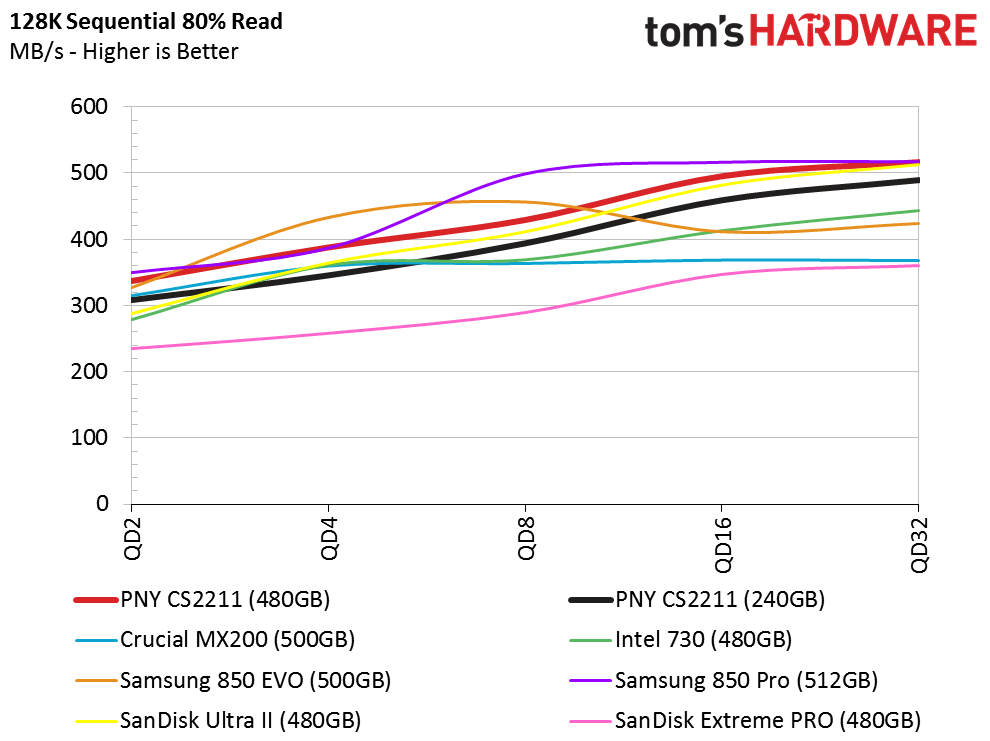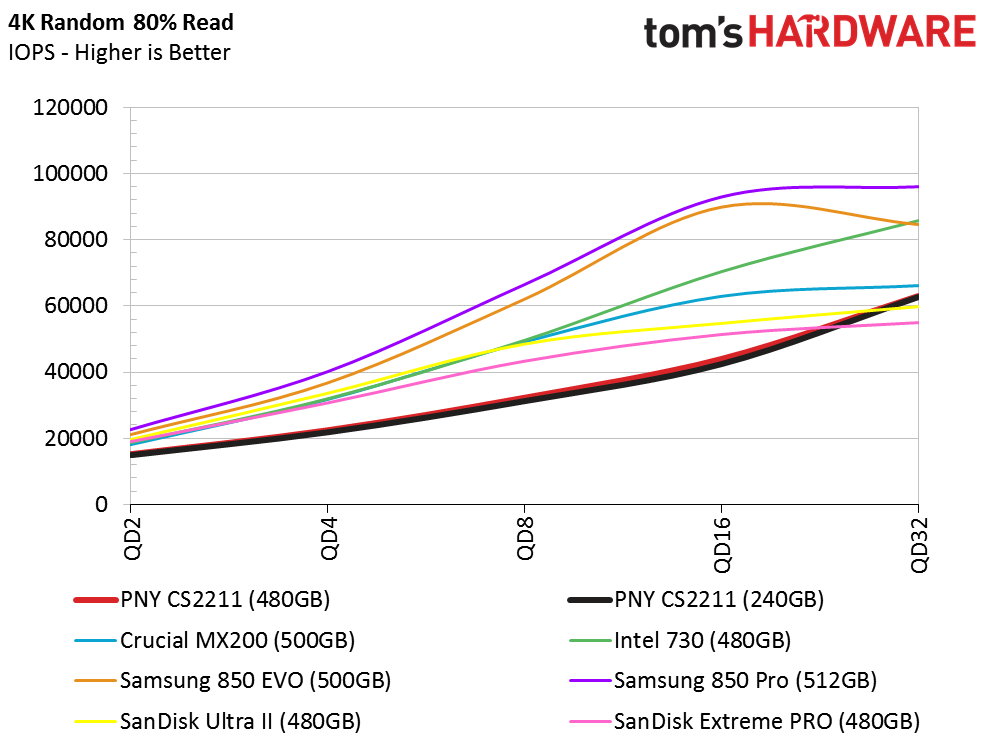PNY CS2211 XLR8 SSD Review
PNY released two new consumer SSDs that employ Phison's S10 controller. Today, we're looking at the CS2211 model, sporting Toshiba MLC flash. This enthusiast-oriented drive was designed for gaming and 4K video.
Why you can trust Tom's Hardware
Mixed Workload And Steady State
80 Percent Sequential Mixed Workload
Our mixed workload testing is described in detail here, and our steady state tests are described here.
The impressive sequential numbers we saw from our 100 percent read and write tests carries over as we start mixing I/O. Here we're using a blend of 80 percent reads and 20 percent writes to simulate the traffic most desktop users subject their PCs to.
PNY's CS2211 SSDs respond well to the sequential mix; the 480GB model nearly matches Samsung's 850 Pro at a queue depth of two. That makes the 480GB CS2211 one of the best options you can choose for this workload, and we think a lot of that has to do with the firmware update Phison rolled out for its controller a couple of months ago.
80 Percent Random Mixed Workload
Likewise, the low random reads we saw in our 100 percent test carry over to this mix of 80 percent reads and 20 percent writes. The 240GB and 480GB models fare similarly, both landing under the other drives we're measuring.
Later in this review, we'll see how these fairly weak numbers correlate to real-world application performance.
Sequential Steady State
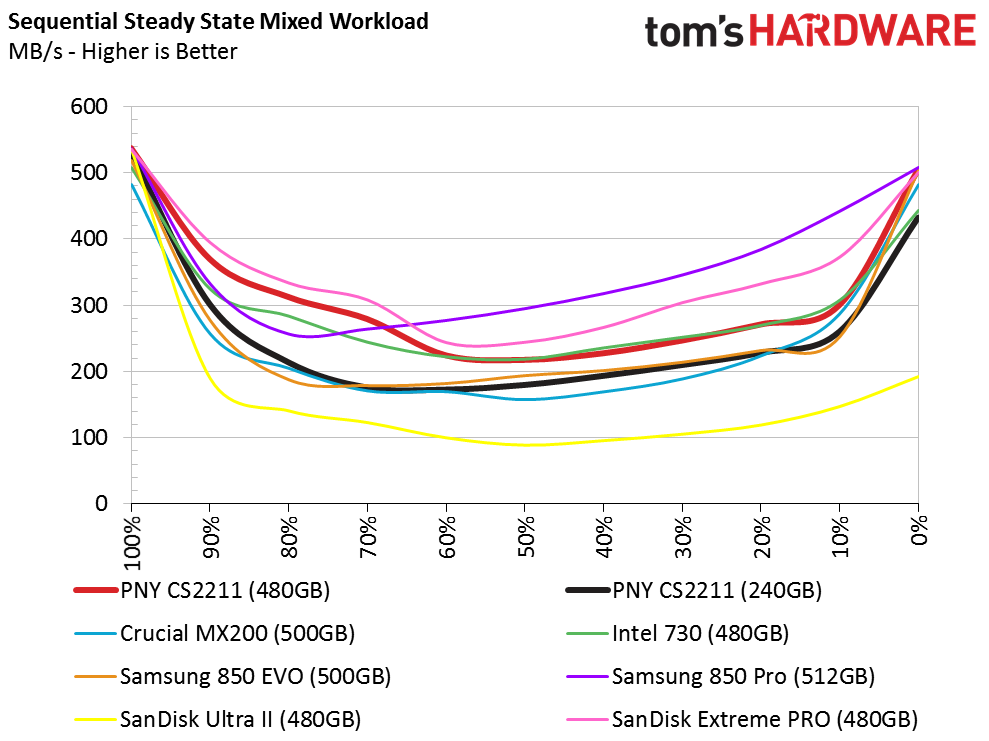
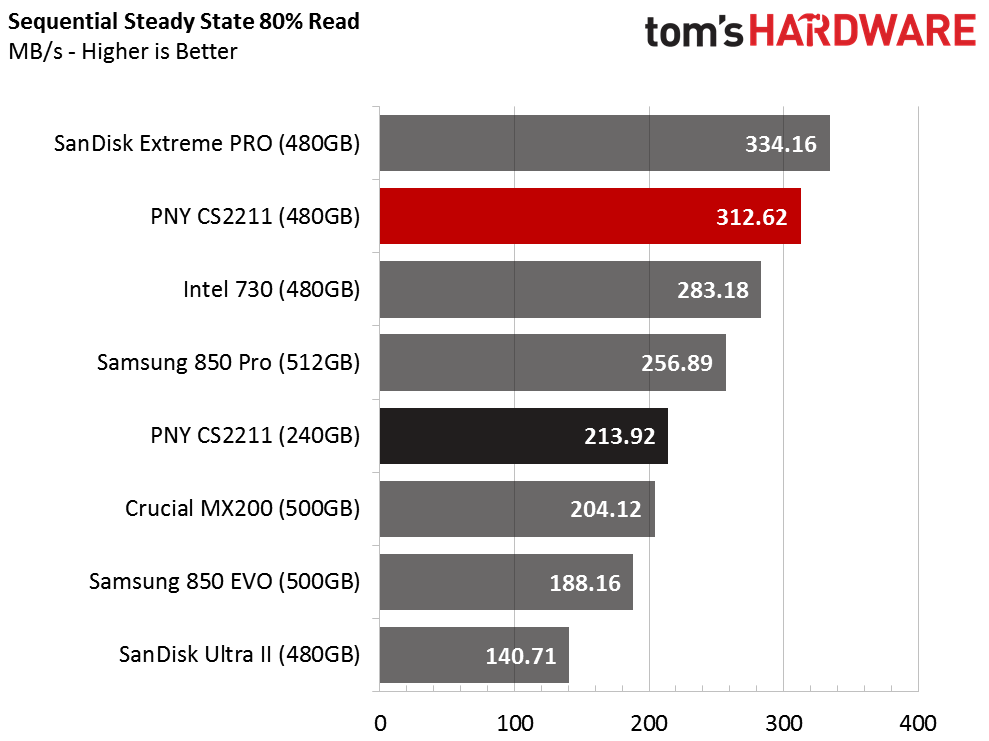
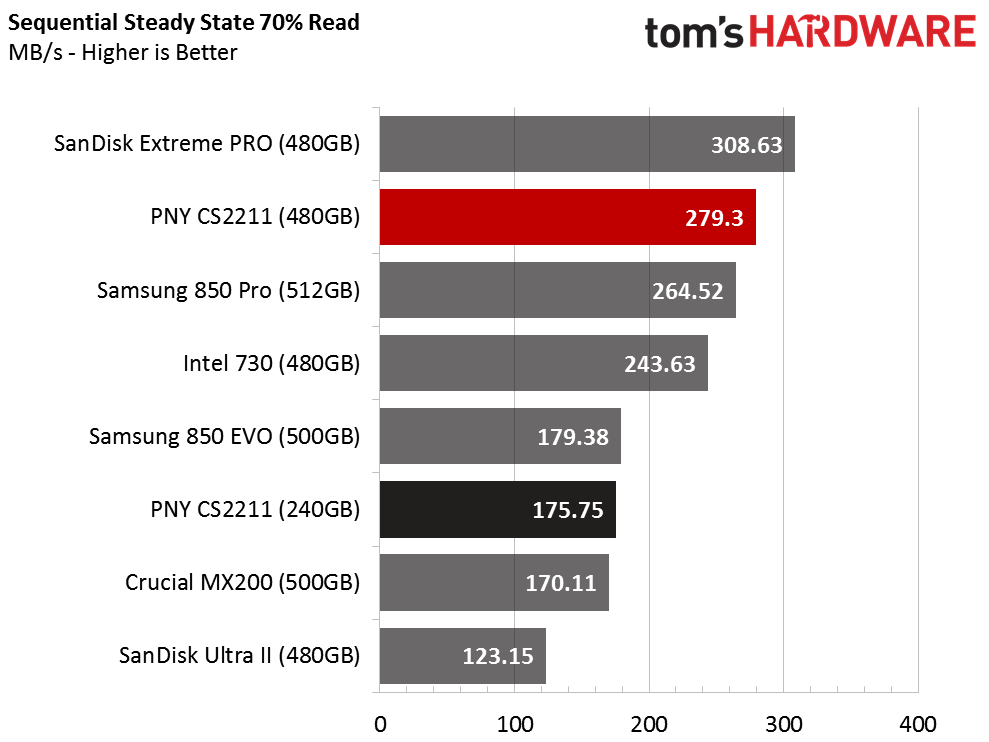
Steady state testing serves a couple of purposes for us. First, we're able to look at performance when the drive's flash is nearly full. We can also evaluate mixed workloads in steady state using different ratios of reads and writes. Of course, you need to know the behavior of your own application in order to make sense of it all. For instance, if you edit video and read data from the same drive that the output is recorded to, your mix might be 50 percent reads. If you read from two files and merge them into one recording, then your mix gets closer to 66 percent reads.
PNY's 480GB CS2211 performs well until we pass 70 percent reads. With 40 percent of the blend involving writes, the CS2211 starts to slow until we get closer to 90 percent writes.
Get Tom's Hardware's best news and in-depth reviews, straight to your inbox.
Random Write Steady State
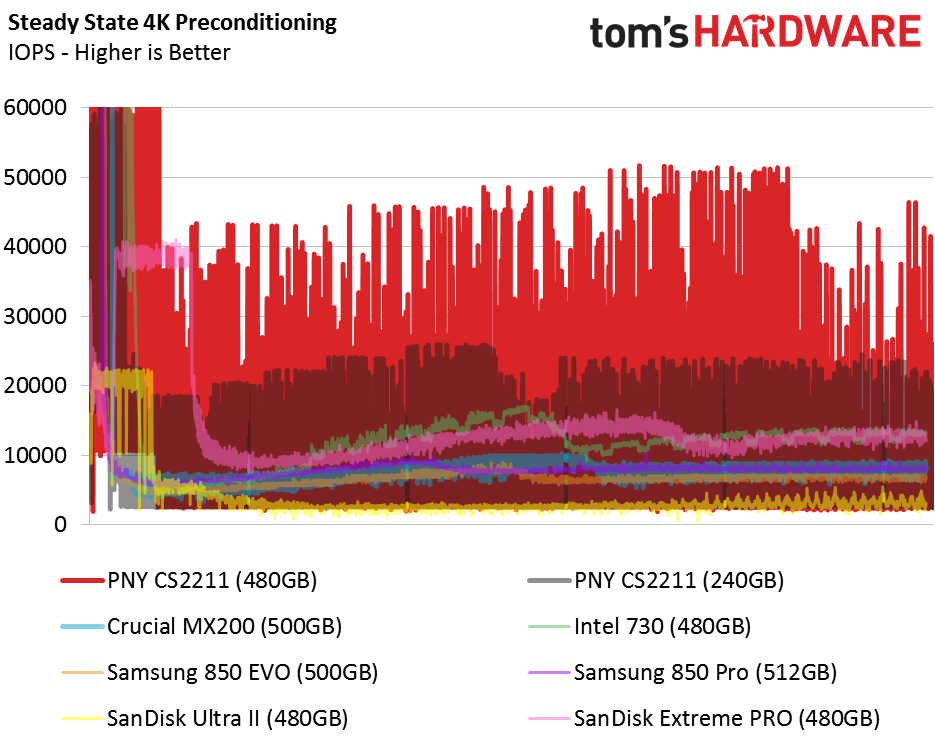
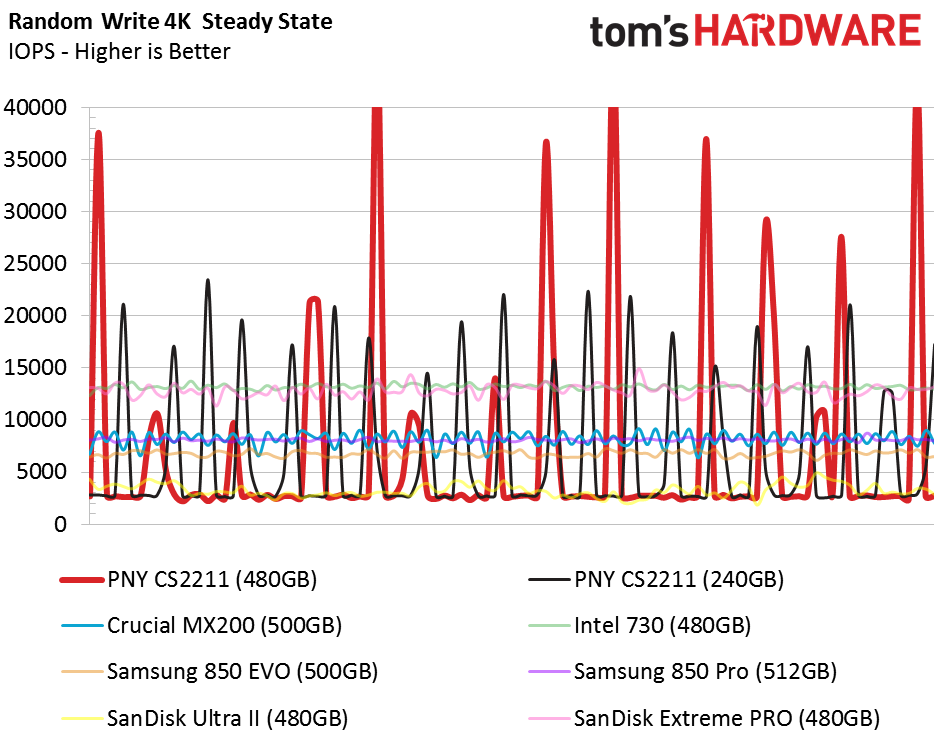
The steady state random write test also shows us a couple of things. First, we get a hint about consistency. In a RAID array, we want smooth performance like what Intel's SSD 730 is known for. But before an SSD can be considered a good candidate for an environment like that, it needs to prove itself here. Second, we get a look at how high (or low) steady state random I/O is under these conditions.
Both of PNY's CS2211s hit high peaks. But their baseline performance is unfortunately low compared to many of the other drives in this segment. Neither SSD would perform well in a RAID 0 array used in a professional environment.
Current page: Mixed Workload And Steady State
Prev Page Four-Corner Performance Testing Next Page Real-World Software Performance
Chris Ramseyer was a senior contributing editor for Tom's Hardware. He tested and reviewed consumer storage.
-
ubercake Like the article states, it's hard to beat the Samsung 850 EVO price/performance/5-year warranty value. Simply because of the 5-year warranty on the 850 EVO in addition to their competitive performance, I bought my first non-pro edition of an SSD.Reply -
JQB45 Warranty is the most important thing I consider when buying an SSD, then price, then speed.Reply -
xenomega I always try to buy from a company like PNY, that's based and manufactures in the USA. That's the most important thing I consider.Reply -
JQB45 Reply17816142 said:I always try to buy from a company like PNY, that's based and manufactures in the USA. That's the most important thing I consider.
They might assemble the SSD here but both the controller and MLC Flash are designed and created in other countries. -
mapesdhs Typo in the Comparison summary table, it says 850 Pro 500GB where presumably it should be 850 EVO 500GB.Reply
